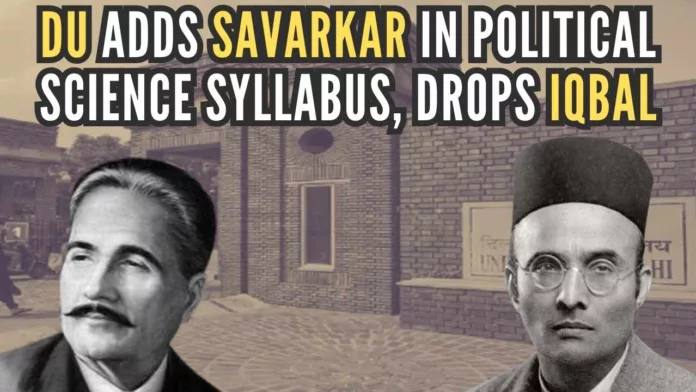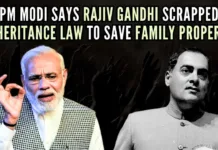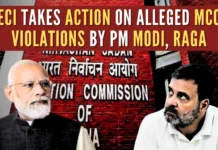
Iqbal axed, nod for a new course on Savarkar by Delhi University in political science course
Delhi University (DU) drops a segment of a political science course and it gets politicized and globalized instantaneously. What is it if not the “Academic Jihad” by the left-leaning media and the closed-minded critics of the present ruling government led by Modi in India?
The media and politicians in the opposition suddenly found another opportunity for making it sensational. How intense must be their propensity to turn a “routine” curriculum matter to “Hindu-Muslim.” and/ or “India-Pakistan” twist to get the coverage in the print journalism and social media. So much so that the curriculum change became the news in the global edition of University World News (where I read and became very curious)[1].
The curriculum change at DU was simply dropping a poet Muhammad Iqbal who wrote the song ‘Saare Jahan Se Achha[2].’ The song was written by him during the Colonial times possibly with relevance to undivided India’s freedom struggle (India was known Hindustan at the time). Iqbal was not only a poet but also an influential politician of his time and thus relevant in an undivided India.
He is irrelevant today because Iqbal suggested that undivided India could have no peace unless Muslims got their own separate nation. It eventually led to the creation of Pakistan in 1947 after Iqbal’s death in 1938 before he could see his dream come true. Later, Pakistan honored Iqbal as its national poet. Iqbal was born in today’s Pakistan, died there, and promoted two-nation agenda.
Iqbal has been a topic in the DU course titled ‘Indian Political Thought-II’ for too long. Without doubt, he is of little relevance in New India after 75 years since Independence. Why should the students at DU and the rest of India care about Iqbal in 2023?
Most people like me are familiar with the song but its author had little or no significance. In fact, I had never heard of him because Jinnah overshadowed and took credit for “two-nation” theory to get India partitioned. Today, I could not agree more with the DU’s Vice Chancellor Prof. Yogesh Singh’s statement, “those who laid the foundation to break India should not be in the syllabus.” The proposal to drop Iqbal was unanimously passed by the Academic Council presided by the Vice Chancellor.
I can appreciate the curriculum change being in the DU Updates. However, most other space in the national and global media is unjustifiable. When I became curious and wished to research, I googled the topic, “ University dropping Muslim poet from political science syllabus.” I was astounded to find dozens of India’s newspapers covering the topic. The news of an insignificant curriculum change went as far as India News published in Spanish, Italian, German, and French languages, Pakistan’s Geo-News, Milano Zone (in Italy), and the U.S. based University World News.
I can appreciate a handful of faculty members opposing the curriculum change but why the dishonorable Rana Ayyub? I have not changed my opinion about her poor journalism ethics since my article in 2021[3]. She tweeted, “Another day. Same story. New India…” Of all the journalists, Ayyub cannot think of anything better while enjoying the hospitality of being a journalist for the ultra-left, anti-India media in the West.
Another day. Same story. New India
Delhi University removes poet Mohd Allama Iqbal, who wrote ‘Sare Jahan Se Acha’, from BA syllabus https://t.co/E7O2OFYsPl
— Rana Ayyub (@RanaAyyub) May 27, 2023
Is Ayyub simply reacting and making fool of herself in arguing against the curriculum change when more than one hundred retired high court judges, former bureaucrats, and retired ambassadors issued a statement in support of the DU academic council decision. They went on to support including Savarkar in the political science curriculum. “History as written in texts and taught in any country should truthfully reveal the facts and be interpreted impartially and without any bias,” the statement said.
The signatories know and understand the current state of New India and I personally support the introduction of leader like Savarkar in the university curriculum. I was deprived of knowing what he or Subhash Chandra Bose stood for but the new generations deserve that knowledge. It is regrettable that the Congress led government never let us study about leaders like them for their undeterred support for India’s freedom.
I abhor people like Ayyub with “jihadi” mindset getting involved in academic discourse at DU without appropriate credentials. What expertise can she claim about curriculum changes except her unstated bitter opposition to Savarkar, a Hindu nationalist. She may also be reacting to the Akhil Bharatiya Vidhyarti Parishad (ABVP) statement, “Delhi University academic council decided to scrap fanatic theological scholar Mohd Iqbal from DU’s political science syllabus. Mohd Iqbal is called the ‘philosophical father of Pakistan’. He was the key player in establishing Jinnah as a leader in Muslim League. Mohd Iqbal is as responsible for India’s Partition as Mohammad Ali Jinnah is…”
The truth is that New India is changing for the better in all aspects- politically, economically, socially, academically, infrastructure improvements, military power, foreign investments, and manufacturing. The enormous change in just about a decade under Modi leadership including the ‘New Education Policy 2020’ is not being swallowed by the opposition parties and left-wing media critics in India and abroad. The curriculum changes in India including the one under discussion at DU are part of NEP 2020.
India’s upcoming national election in 2024 is already in the play with opposition coming together to defeat the undefeatable Modi. In that vision, no matter how short sighted it is, even the routine curriculum change at DU is being used as a toolkit to criticize and undermine India’s strong democracy and development.
Today’s New India will be in the global headlines soon when Modi descends in the United States on June 21. He will lead the International Yoga Day at the United Nations. It will be followed by a State Dinner at the White House and Modi’s address at the joint session of both the Senate and House for the second time in his tenure as Prime Minister. It does not end there because India as the host for G20 will bring world leaders to India later this year.
In summary, perhaps Iqbal is a poet, politician, philosopher, and/ or a theological scholar for Pakistan but he is irrelevant to India. Thus, dropping Iqbal from the university curriculum is a minor blip in the larger politics of New India. Let the critics enjoy the short-lived stories about the irrelevant poet Iqbal or irrelevant politician RaGa because they have nothing better to enjoy.
Note:
1. Text in Blue points to additional data on the topic.
2. The views expressed here are those of the author and do not necessarily represent or reflect the views of PGurus.
Reference:
[1] University drops Muslim poet from political science syllabus – Jun 01, 2023, University World News
[2] Poet Muhammad Iqbal, who wrote ‘Saare Jahan Se Achha’, dropped from DU political science syllabus – May 27, 2023, University World News
[3] Rana Ayyub’s journalistic ethics and anti-India/ anti-Modi innuendos in Washington Post – Oct 19, 2021, PGurus.com
PGurus is now on Telegram. Click here to join our channel and stay updated with all the latest news and views
For all the latest updates, download PGurus App.
- Education and election in Bharat: Race to the top - April 16, 2024
- Kejriwal: “An Insignificant Man” or a corrupt politician with impending prison term - March 24, 2024
- Bharat’s general elections and the Model Code of Conduct - March 22, 2024











It is important to continue teaching about historical figures while presenting a balanced perspective that acknowledges both the positive and negative aspects of their actions. As individuals, we should refrain from passing judgment on what is deemed relevant today. However, it is undeniable that certain actions and ideologies have had profound impacts, such as the partition of India, resulting in the loss of millions of lives. Therefore, it is crucial to delve into the ideology that led to such consequences and learn from it. By doing so, we can gain a deeper understanding of historical events and their implications for the present and future generations.